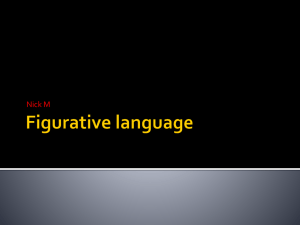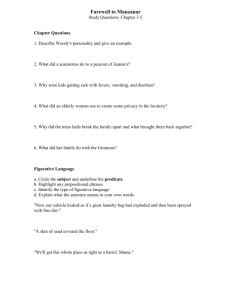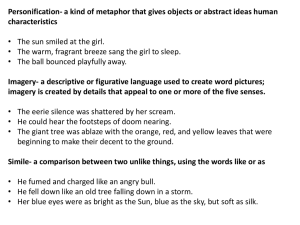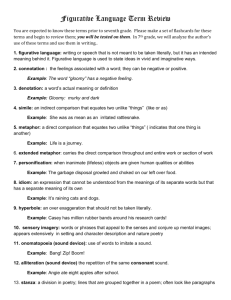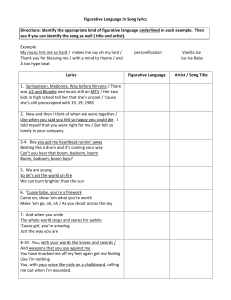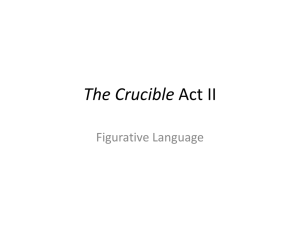school ppt 2014
advertisement
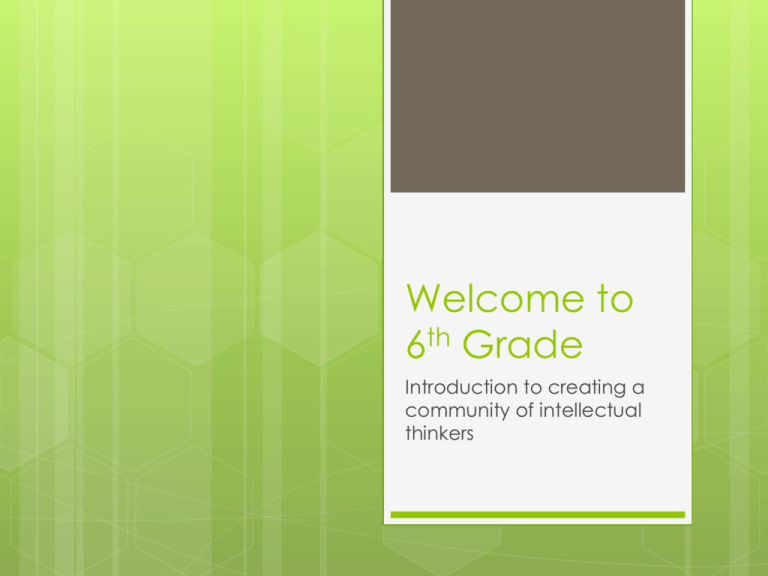
Welcome to 6th Grade Introduction to creating a community of intellectual thinkers Prayer Serenity God, grant me The serenity to accept the things I cannot change, The courage to change the things I can, And the wisdom to know the difference. The Big Picture The mission of the Catholic schools in the Archdiocese of Kansas City in Kansas is to educate children by passing on our faith through word and action in order to help our students develop a friendship with Jesus Christ and a love for His Church. Introductions & Purpose Purpose of this Session: To give interested caregivers an overview of 6th grade. 2 minute – Introductions An overview of Religion “Demonstrate knowledge of the Old Testament and our Jewish spiritual heritage.” Review key prayers; recite and explain the Apostle’s Creed, Hail Holy Queen Actively participate in liturgy, meditation, and community service projects Study the lives of designated saints Saints Project How you can help your student in Religion Reread the scripture for that day, and clarify or discuss the meaning Daily Family Prayer Model for your child “Christ-like” behavior Thoughtfully communicate with your child daily Refer your child to scriptures and the catechism when faced with difficult choices Retell personal experiences about your conversion with your child Your student should have their Bibles by Labor Day. Three Good Reasons to Love Middle Schoolers Middle schoolers thinking is much more sophisticated. They can think about possibilities, think abstractly, think multidimensionally, and think how it is relevant. Middle schoolers are emotionally labile— can empathize. Middle schoolers are social because they love to talk! What happens during “middle” school (Boy and Girls Learn Differently!—by Michael Gurian) Males Hormones begin to increase; more likely than ever to use aggression to resolving differences Channel surfs Attention seeking Good at reading maps, deciphering directions, and chess Seek peer approval Focused on action, and exploration Females Hormones begin to increase; Estrogen generates greater activity in the brain—increased concentration Able to watch one program for an extended amount of time Sings in tune Focus in on communication and relationships; seek peer approval Good at learning foreign language, and fine motor skills Middle School 6th Grade 7th-8th Rotation to different subjects 3 teachers 6 teachers Dress code (see handbook) Lunch: 12:05, and free time X 20-25 MINUTES ON PLAYGROUND X 10-15 MINUTES IN COURTYARD VBS (see info) X X House X X Study Hall X X Electives X X After School Service and Study Groups X PS on Tests X Interactive agendas X Travel time Random Locker Check Hall Passes 4 minutes 3 minutes Weekly X X What is free time? Extra Help Time (behavior/academics) A time to “catch up” Reteach behavior guidelines Reteach a concept in academics Discussion and/check in time Relationship building A snapshot of Mrs. Kelly Fourth year at Sacred Heart; Took early retirement from USD204 so that I could teach in Catholic Schools; Teaching is my second career choice, but I consider it my true “calling.” I have taught for “many” years. I am a member of St. Peter’s Cathedral; I went to elementary school at St. Peter’s, Bishop Ward for high school, KCKCC, associates degree, St. Mary’s for a B.S. in Education, and K-State for certification in instruction for English Second Language Learners. My priority is your child. My own personal experiences taught me how an adult can impact a child’s wellbeing, so I will do everything to make sure their educational experiences are positive and show evidence of growth. A Snapshot of Mrs. Joerger This is my second year at Sacred Heart. Before I was given the amazing opportunity to teach at Sacred Heart, I spent two years in Leavenworth as an elementary Special Education teacher. I am a parishioner at Queen of the Holy Rosary. I graduated from Bishop Miege and then from Benedictine College. Thank you for allowing me to play a role in your child’s life. I grew up with the foundation of a Catholic school education. My goal is to give your child that same solid foundation. The success of your student (mentally, emotionally, and spiritually) is my first priority. The Road to Success Homework is important(If the student does not do it, they are behind, and usually stay behind during that class period.) Be prepared for class with all the necessary materials. (Forgetting supplies and books, makes the student anxious. Anxiety leads to the inability to focus on what we are doing.) Example of Homework Homework Assignment: Download your favorite song’s lyrics. Next Day: Figurative Language. After reviewing examples of different types of figurative language, look at your song lyrics and identify examples of figurative language. Exchange song with a partner, and with a different color of pen or pencil, identify examples of figurative language. Closure: How did figurative language help in creating your favorite song? If you could add a type of figurative language to the song, what would it be and why. As a parent you can: Make sure you check your student’s agenda—insist that they use it. Don’t just ask “Did you do your homework”—ask them to show it to you. Remember all the “hard stuff” is done at school— homework is to either get them ready for the in-class work, or to give them practice or reflection time about that day’s subject. Some homework will require the use of technology, and ALL homework has deadlines. Extra Credit is not an option. Grade Card Grading System In class work: WRN’s, projects, daily work, group work, handouts, bell work, exit slips, admit slips; checks for understanding (90%) In class work Homework Work Skills Homework: Assignments that students need to do after class to be prepared for next day. (5%) Work Skills: class on time, Supplies, Assignments completed on time, Quality of Work, 21st Century Skills-(Collaboration, communication, creativity 5%) Tests – 50% Quizzes, Projects, in class work – 40% FYI Grades updated every Sunday (exception – Projects) All unit tests require parent signature The Gradebook is weighted What is happening in the classroom Daily Students Talking and Moving Mandatory Students Participation participating in witnessing and making connections with their faith Communicating with Parents Weekly or Bi-Weekly updates through WordPress website (joergerkelly6) Respond to inquiries through appropriate resource (email) We do not have the opportunity to check our emails until 2:20 on most days. If you need to get a message to your child, please go through the office. Keep appropriate documentation on your student’s growth No surprises! (Please do not leave messages on the phone to call—email us instead to call you) Behavior Expectations in the 6th grade Classrooms 1. Respect yourself. Stay focused and do your best work 2. Respect the community members. Be kind to everyone, and treat them in the manner you would like to be treated. 3. Respect the environment Keep our school clean and safe See school VBF guidelines for specific expectations Virtuous Behavior Formation – Stars - Each student has a card that they carry around with them all day. - When we see them being a “Smart decision maker”, “Hospitable”, “Organized”, or a “Joyful Christian”, then we reward them with a star. - Once they have 20 stars, they have filled their card and their card is placed in a school wide drawing. - As a grade, students will determine goals and rewards. VBF Flow Chart Step 1 - Slow Down card and/or Verbal Warning Step 2 - Stop Card or Verbal indication of loss of break time...Dialogue w/ Teacher. Step 3 - Blue Card or Verbal indication that student will complete 4 Quadrant Sheet. Step 4 - Morning Meeting - after loss of 3 Break Times Parent signs Morning Meeting Sheet. Step 5 - Student meets with Mrs. Feist during lunch, parents contacted, and staff discussion of possible behavior plan. Step 6 - In-School Suspension Certain behaviors will result in immediate morning meeting. ELA Literature Study Speaking and Listening Speeches w/presentation (communicating/collaborating) Language Foundations 3+ books a quarter (readers response journals) Pronouns, Figurative, connotative, & denotative Language; Conventions of Language Writing Argument essay w/text evidence Personal Narratives Blogging/Quick Writes How you can help your student be prepared for his or her ELA class Schedule text a time for reading & responding to Assist in organizing, and seeing the value of education, in particular reading & writing Check in frequently with your student about supplies and homework. Parent Signature on appropriate documents A look at the coming year in Math First Quarter: Ratios, proportions, expressions and equations, number system Second Quarter: Geometry, number system Third Quarter: Statistics and Probability, Geometry Fourth Quarter: Statistics and probability Subject to change How you can help your student be prepared for Math Ask you child what we covered in math today. Have them explain their notes to you. Let them put math into their own words. Try to bring math into their real world. Help them stay organized and encourage them to use their planner. When your child thinks they have the right answer, challenge them to defend their answer. An overview of Science and Social Studies Science - Movement of First Lab safety & Earth’s crustal plates equipment - Waves; p & s Science Process Skills - Boundaries Science as Inquiry between plates - Volcanoes & Second Introduction to Earthquakes Fourth Matter: - Properties of Diversity of singlematter celled - Mixtures and Organisms solutions - Monerans & - States of Matter Protists - Physical and - Human Health & Chemical Changes Disease- Virus - Parts of Third Plate Tectonics: Microscope -Theory of Continental DriftsAlfred Wagener Subject to Change - Earth’s Layers Social Studies Ancient Civilizations Ancient India and China The Roman Empire Ancient Egypt Ancient Greece Early Americas Middle Ages in Europe Ancient Judaism & the Hebrew culture will be covered in Religion class Closing Comments Standards come from the Archdiocese All our topics/concepts will be faith infused Prayer is a constant throughout our day Education and Faith are interwoven and our priority Failure is part of the learning process Having adequate and appropriate technology is part of 21st century learning Questions? Write them on the index card given to you at the beginning of this session. We will respond in a FAQ section on our blog.
